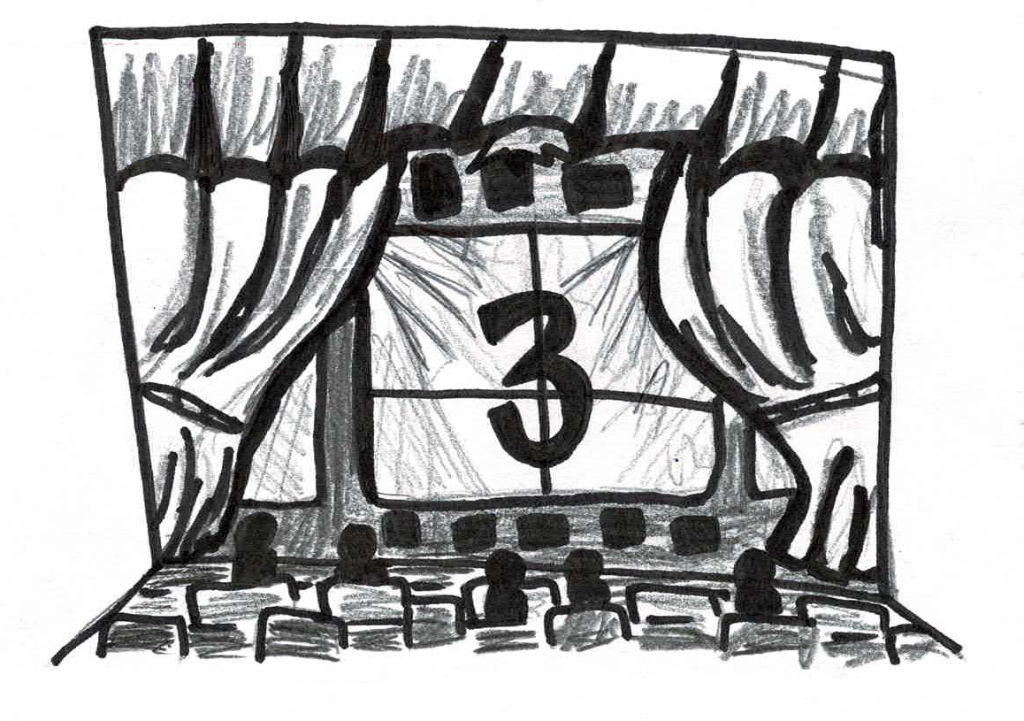
Barbie and Oppenheimer were released last weekend against the backdrop of the Hollywood writers’ strike. The walkout stems from a labor dispute between the Alliance of Motion Picture and Television Producers, representing production companies, the Writers Guild of America (WGA) and the Screen Actors Guild — American Federation of Television and Radio Artists (SAG-AFTRA). Two major concerns exist among media professionals: the lack of residual pay from streaming services and concern over the use of artificial intelligence. The entertainment industry has been going through several changes over the past decade.
Oppenheimer is a biographical film about the work of Julius Robert Oppenheimer, widely regarded as the “father of the nuclear bomb.” The film represents an era of the film industry that will always exist, but to a lesser degree each year. Oppenheimer is not based on a franchise, and does not have recognizable characters with built-in fan bases, such as the Marvel movies. The film embodies an era of risk-taking in which film makers could create stories, both fictional and non-fictional, and get the funding to bring those stories to the big screen. Today, studios have become more risk-averse due to the increase in competition for people’s attention, the reluctance for people to see movies with bad reviews and the desire to invest in “safe” ideas. Oppenheimer is unique — it is a film that does not rely on name recognition, other than perhaps the stellar reputation of the film’s director: Christopher Nolan. As the decades pass, big budget films will rely more heavily on branding to bring in an audience and secure profits. Films like Oppenheimer will become rarer as time goes on.
By contrast, Barbie is a recognizable brand of dolls that nearly every person alive knows. Making a film about Barbie was about as risky as making the recent Mario Bros. movie. Given the success of Mario Bros. and the stellar opening weekend for Barbie, this category of entertainment will consume the majority of big budget films produced in Hollywood. Since investing in a new idea is risky, we rarely see new ideas on the big screen. It is safer to invest in films with built-in brand recognition, which explains why the Mario Bros. movie and Barbie have done so well. The long list of franchises includes the Fast and Furious, Star Wars, Godzilla, Mission: Impossible, Terminator, Harry Potter and Toy Story among so many others. It makes more sense for studios to invest in stories related to these franchises because they all have built-in fan bases that will come out to see the films. Before the 2010’s, this was less of an issue because there was less competition for our attention. Today, a new streaming service seems to come out almost every year. Content creators on YouTube, TikTok and Instagram create videos that are sometimes more entertaining than big budget films. In order for people to spend money to see something, it needs to be really good or satisfy our desire for nostalgia.
The film industry will always exist, and like radio, it will evolve. Podcasts have allowed anyone with a little bit of startup money to create a high-quality radio program about any topic they like. As the tools to create films become more accessible to the general public, user-generated content and short films will compete with big budget franchise films that come out of Hollywood. Films and TV shows with multimillion-dollar budgets will rely on brand recognition more often to get viewers into theaters. The unique ideas will come from regular people with nothing more than a little bit of startup money and a dream.
The writers’ strike in Hollywood represents a turning point for the industry. As user generated content outpaces film and television shows the ability to make a living working for studios will become increasingly difficult. If AI generated scripts become the norm, a career in Hollywood as a writer may not exist at all. Someday, Hollywood films will be almost entirely franchise based and the people they hire to act will be those with strong connections to the industry rather than talented actors who are not as well connected. People who are interested in working as entertainers will find more success working for themselves. The landscape of YouTube is very similar to entertainment in the 1950s, with seemingly endless opportunities for the ambitious and creative.
The writers in Hollywood are in many aspects fighting for their professional futures. If they fail, a good paying career in Hollywood may be almost impossible unless you are among the insanely wealthy at the top. Oppenheimer embodies the Hollywood of the past, and Barbie represents the Hollywood of the future. The outcome of the writers’ strike will determine their place in that future.

